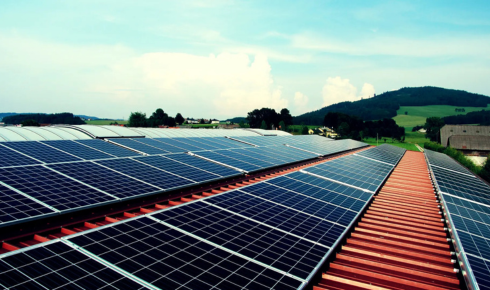The global energy landscape is evolving rapidly, and solar energy stands at the forefront of this transformation. As fossil fuels deplete and electricity costs rise, more people are looking toward sustainable, renewable, and affordable energy alternatives. Among the most effective solutions available today is the solar power system—a reliable, eco-friendly way to generate clean energy and reduce electricity expenses.
The Growing Demand for Solar Energy
Across the world, solar energy adoption is accelerating. From residential buildings to commercial complexes and industrial facilities, the shift toward renewable energy is undeniable. With abundant sunlight available for most of the year, countries like India are ideally positioned to make the most of solar technology. It’s not just a trend—it’s a global movement toward sustainability, energy independence, and environmental protection.
What Is a Solar Power System?
A solar power system converts sunlight into usable electricity using photovoltaic (PV) cells. These systems typically consist of solar panels, an inverter, batteries (optional for energy storage), and mounting structures. The generated electricity can power household appliances, lighting, and even large-scale commercial equipment. Depending on your energy requirements, you can choose between on-grid, off-grid, or hybrid systems.
- On-Grid Systems: Connected to the main electricity grid, allowing you to export excess energy and earn credits.
- Off-Grid Systems: Work independently with battery storage—perfect for remote areas without grid access.
- Hybrid Systems: Combine the benefits of both, ensuring uninterrupted power supply even during outages.
The Rise of Solar Rooftop Systems
In urban and semi-urban areas, the solar rooftop system has become a preferred choice for homes, offices, and institutions. By utilizing otherwise unused roof space, these systems generate clean energy without affecting your building’s functionality or aesthetics. They are easy to install, highly efficient, and significantly reduce monthly energy bills.
Governments across India are actively promoting rooftop solar through attractive subsidies, tax benefits, and net metering policies. This means homeowners and businesses can save money while contributing to a greener planet.
Why You Should Go Solar
Switching to solar energy isn’t just an environmental decision—it’s a smart financial move. Here are some key benefits:
- Drastic Cost Savings: Solar systems help slash electricity costs by producing free energy from sunlight.
- Low Maintenance: Once installed, solar panels require minimal upkeep, ensuring long-term reliability.
- Clean and Green: Solar energy reduces carbon emissions, helping fight climate change.
- Energy Independence: Protect yourself from rising energy costs and power fluctuations.
- Government Incentives: Enjoy rebates, tax credits, and subsidies to make your investment more affordable.
Components of a Solar Power System
To better understand how these systems work, let’s look at their essential components:
- Solar Panels: Capture sunlight and convert it into DC electricity.
- Inverter: Converts DC electricity into AC electricity for home or business use.
- Mounting Structure: Ensures panels are securely placed at the right angle for maximum efficiency.
- Battery (Optional): Stores excess energy for use during the night or power cuts.
- Monitoring System: Tracks energy production and system performance in real time.
Choosing the Right Solar Rooftop System
Selecting the right rooftop solar system depends on your energy consumption, roof type, and budget. A professional solar installer will assess your property and recommend a system size that fits your requirements. They’ll also help with installation, maintenance, and navigating government subsidy programs.
To maximize performance, ensure that:
- Your roof receives sufficient sunlight throughout the day.
- The panels are installed at the correct tilt angle.
- You choose high-quality panels and inverters from trusted brands.
Environmental and Economic Impact
Solar energy plays a crucial role in reducing our dependency on fossil fuels, which are major contributors to pollution and global warming. A typical residential solar system can offset tons of carbon dioxide emissions each year. Economically, solar installations also create job opportunities in manufacturing, engineering, and maintenance sectors, boosting local economies while supporting sustainable growth.
The Future of Solar Energy
The future of solar energy is incredibly promising. With technological advancements, modern panels are becoming more efficient, durable, and affordable. Innovations like solar batteries and smart inverters are making energy storage and monitoring easier than ever. In the coming years, solar will be an integral part of every home and business, contributing to a cleaner, greener planet.
Conclusion
Embracing solar energy is no longer an option—it’s a responsibility and a smart investment. A solar rooftop system not only reduces your electricity bills but also enhances your property’s value and helps preserve the environment. With the right solar solution, you can enjoy energy independence, long-term savings, and a sustainable lifestyle.
Start your journey toward a brighter, greener tomorrow by investing in a solar power system today—because the sun’s energy is limitless, and your future deserves the best.

